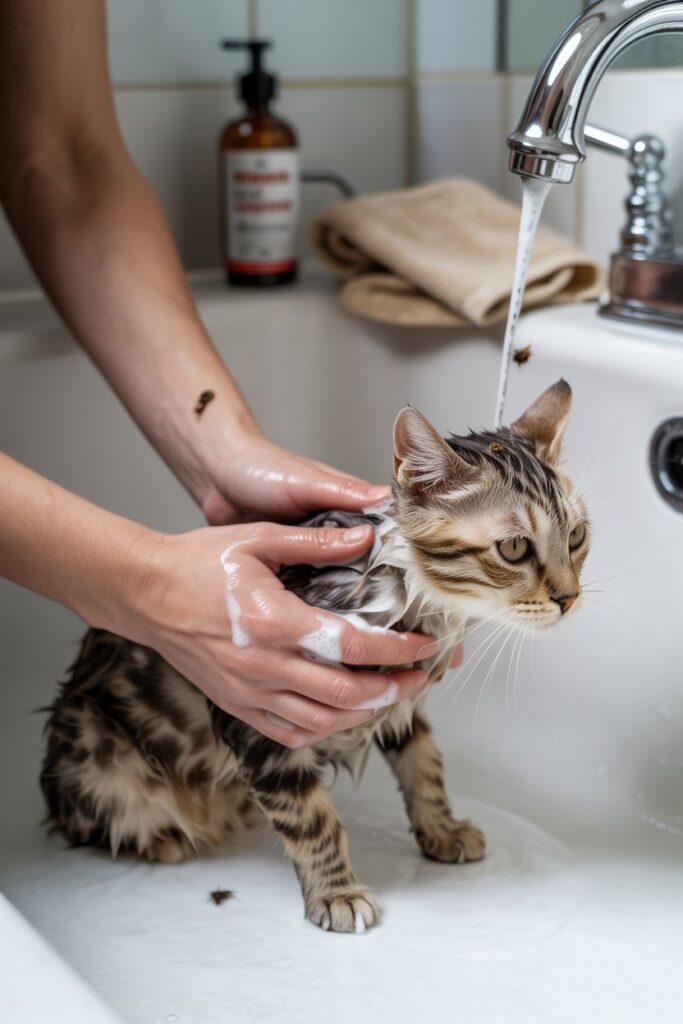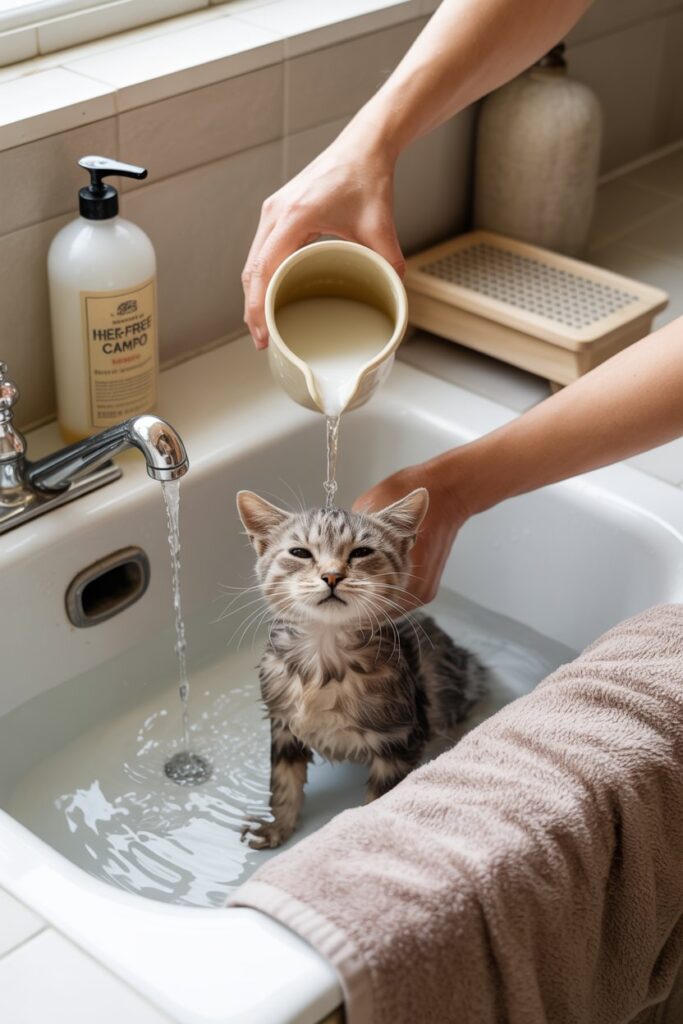Many pet owners wonder, “How often should I bathe my cat?” Keeping your cat’s coat healthy and shiny is important. Cats groom themselves well, but sometimes a bath is needed for comfort and health.
The right bathing routine depends on age, breed, coat length, and lifestyle. Too many baths can remove natural oils, while too few can lead to dirt and odors.
In this blog, we’ll help you understand your cat’s needs, the signs that indicate a bath is due, and tips to keep their fur soft and clean without adding stress.
Self-Grooming Cats

Cats are great at grooming themselves. This keeps them clean and fresh. Their tongues have tiny hooks that remove dirt and loose fur. So, they usually don’t need baths often.
However, some situations may need a bath. If your cat gets sticky or encounters something harmful, a bath is necessary. These cases are rare, though.
Older or overweight cats may find grooming hard due to limited movement. You might need to help them with brushing or an occasional bath. Regular grooming can also strengthen your bond with your cat.
Discover top cat grooming products available now on Amazon
Coat Type Matters

Short-haired cats usually need fewer baths. Their fur doesn’t trap much dirt. Regular brushing keeps them clean and removes loose hair, so baths are less frequent.
Medium-haired cats need more grooming than short-haired ones. Their fur can mat and tangle. Regular brushing and occasional baths help keep their coat and hygiene in check.
Long-haired cats require the most grooming. Their fur mats easily and traps dirt. Regular baths and daily brushing are essential for keeping their coats healthy and clean.
Medical Reasons

Some medical issues, like skin infections or allergies, may need more frequent baths for your cat. Regular baths can clear allergens and soothe irritated skin. This helps your cat feel better and boosts their health.
Cats that are obese or have arthritis often find it hard to groom themselves. In these cases, more baths can keep them clean and prevent skin issues from dirt and oils they can’t remove.
If your cat has a weakened immune system, such as with feline immunodeficiency virus (FIV) or feline leukemia virus (FeLV), more regular baths can help prevent infections. Clean skin and fur lower the risk of bacteria and other germs.
Keep your cat’s coat healthy with these Amazon picks
Outdoor Cats

Cats that spend time outside can get dirty and may need more baths. They often bring home mud, leaves, or other debris stuck in their fur. Cleaning this off can be hard for them.
Outdoor cats are also more likely to face pests like fleas and ticks. Regular baths can help manage these pests and keep your cat comfortable. Use a vet-recommended shampoo that fights these parasites.
Cats that roam outside might come into contact with harmful substances or plants. A bath can wash away any toxic residues or plant materials from their fur. This helps reduce the risk of them ingesting something harmful while grooming.
Bathing Tips

How often you bathe a cat depends on a few factors. Indoor cats usually need fewer baths—about once every few months. Cats with long hair or those that go outside may need more frequent washes to stay clean and healthy.
When you bathe your cat, use lukewarm water and a shampoo made for cats. Be careful not to get water in their ears or eyes. Gently massage the shampoo into their fur, rinse well, and dry them completely to keep them warm.
To make bath time easier, help your cat get used to water slowly. Give treats and praise to make it a positive experience. A non-slip mat in the tub can also help them feel secure and comfortable.
Shop trusted grooming essentials for cats directly on Amazon
Conclusion
Knowing how often to bathe your cat is key to their health and happiness. Most cats groom themselves, but factors like breed, coat type, and lifestyle may need occasional baths.
Always choose cat-friendly products and keep the experience stress-free. Following these tips helps your cat stay clean and comfy without overdoing it.
How Often Should Indoor Cats Be Bathed?
Indoor cats usually need a bath every few months. They groom themselves well. However, long-haired cats or those with health issues may need more frequent baths for coat care.
Watch for signs like odor or dirt buildup to know when a bath is needed.
Can I Use Human Shampoo On My Cat?
No, human shampoo is not safe for cats. It can upset their skin’s natural pH balance and cause irritation.
Always use shampoo made for cats, ideally one your vet recommends. These products are gentler and safer for their skin.
How Do I Make Bath Time Less Stressful For My Cat?
Introduce your cat to water slowly. Use treats and praise as positive reinforcement. A non-slip mat in the tub can help them feel secure.
Keep bath sessions short and calm. This will make things easier for you and your cat.
What If My Cat Hates Water?
If your cat hates water, brush them regularly and spot clean with a damp cloth.
You can also use dry shampoos for cats to remove dirt and odors without a bath. Make sure these products are safe and vet-approved.
Are There Health Benefits To Bathing Cats?
Bathing can remove allergens, soothe skin issues, and get rid of pests like fleas.
For cats with health problems or mobility issues, regular baths can prevent skin infections and boost comfort. Just use gentle, cat-safe products.
